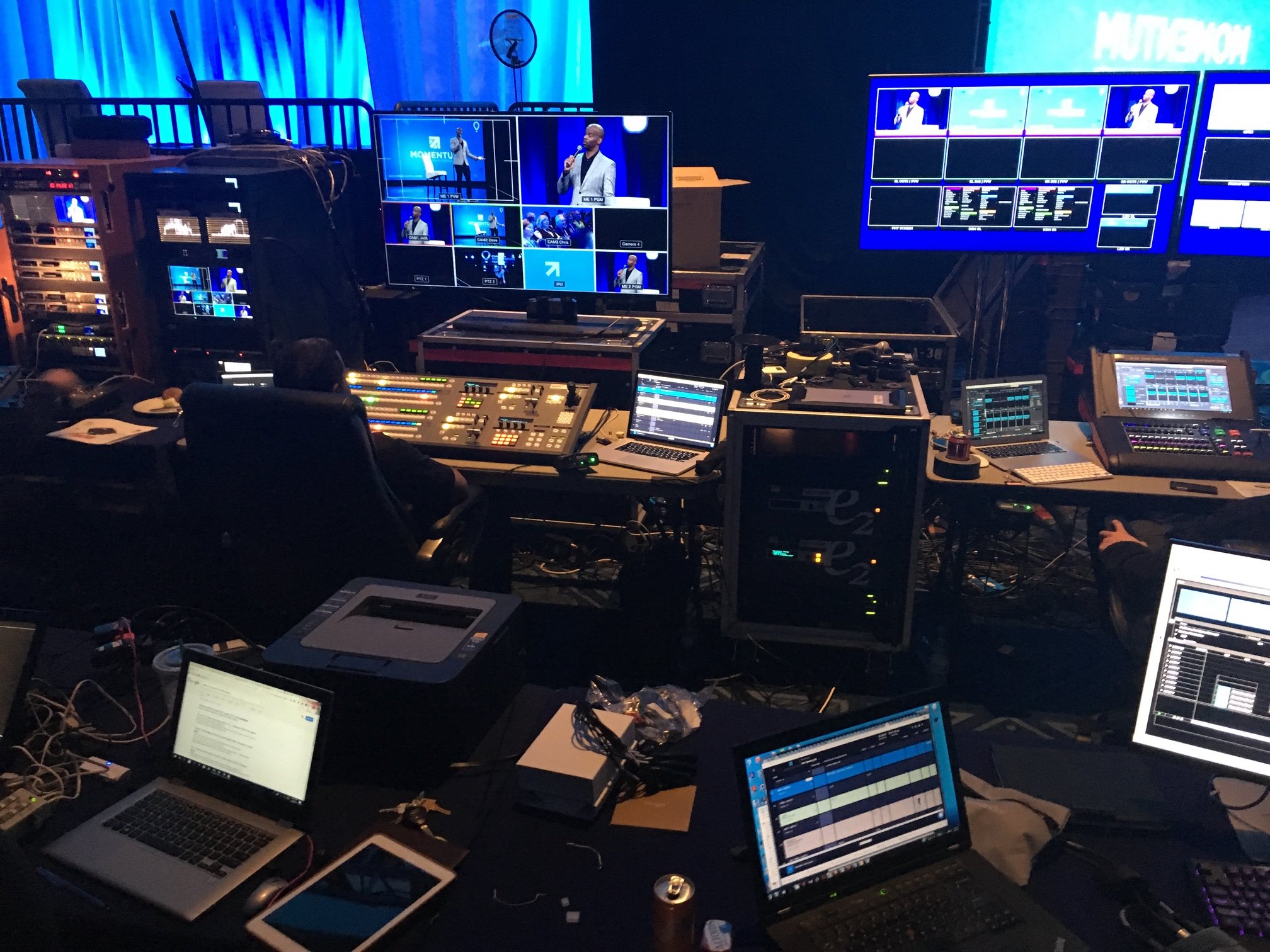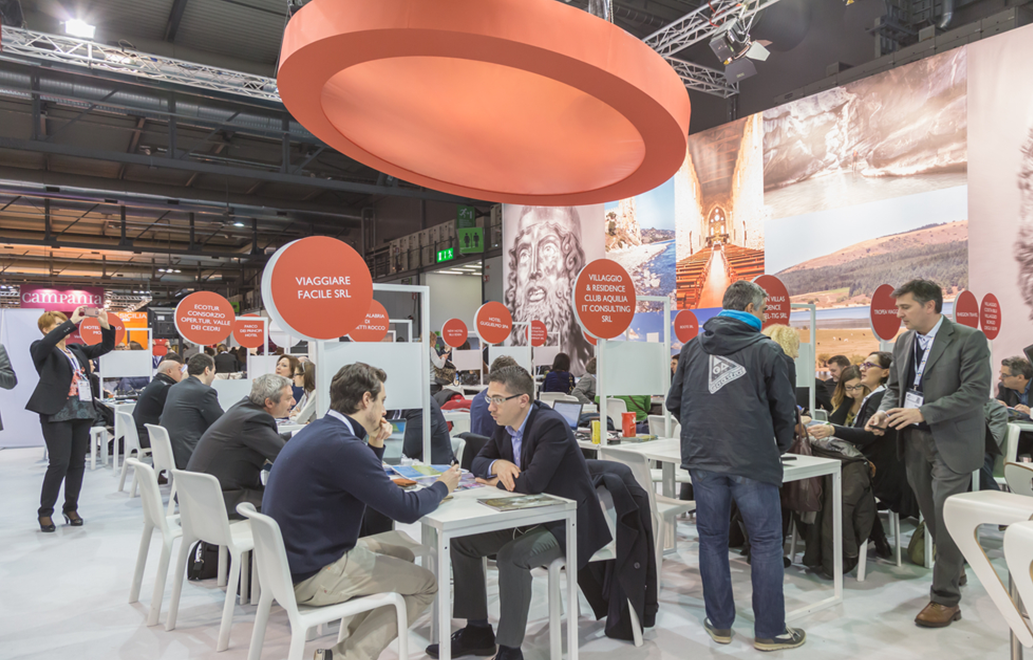Comprehending Event Production: Why It Is Important for Effective Celebrations
Event production plays a critical function in shaping effective gatherings. It entails cautious preparation, sychronisation, and implementation to guarantee every information aligns with the event's vision. This procedure not only boosts participant experiences but additionally helps with purposeful connections amongst participants. Understanding the intricacies of event production can substantially influence the general end result. What are the crucial elements that add to an effective event, and how can they be properly managed?
The Function of Event Production in Developing Remarkable Experiences
Many aspects contribute to the success of an event, event production plays a crucial function in crafting memorable experiences. This complex process incorporates different components, consisting of planning, logistics, and implementation. Efficient event production guarantees that every information aligns with the overall vision, creating a smooth flow that mesmerizes attendees. By working with timelines, managing sources, and overseeing technical aspects, event producers establish a structure for impactful experiences.Moreover, they curate environments that resonate with the target audience, boosting engagement and psychological connection. From selecting suitable locations to incorporating cutting-edge modern technology, the options made throughout production substantially affect how participants regard and bear in mind the event. By focusing on quality and focus to information, event production changes normal celebrations into phenomenal minutes, leaving enduring impacts. Inevitably, the skillful orchestration of these parts defines the essence of an event, showcasing the relevance of expert event production in accomplishing outstanding results.
Key Components of Successful Event Production
Reliable event production depends upon numerous key parts that guarantee success. Planning and sychronisation develop a strong foundation, while technological configuration requirements resolve logistical demands. Furthermore, implementing audience interaction methods improves the total experience, making the event memorable.
Preparation and Control
Planning and sychronisation function as the backbone of successful event production, making sure that every information aligns flawlessly to produce an unforgettable experience. Effective preparation involves developing a clear vision and objectives, while sychronisation entails the meticulous company of logistics, schedules, and sources. A well-defined timeline is important, assisting all stakeholders with critical landmarks and jobs. Interaction plays a crucial function, fostering collaboration among employee, suppliers, and location staff. Normal conferences and updates aid to address difficulties quickly, ensuring that every person remains straightened with the event goals. Ultimately, a structured technique to preparation and coordination not only boosts performance but likewise significantly adds to the general success and enjoyment of the event for participants and coordinators alike.
Technical Setup Needs
An effective event depends greatly on its technical setup needs, which include necessary elements such as audio-visual devices, lighting, hosting, and connectivity. Audio-visual tools consists of microphones, speakers, and projectors, guaranteeing that presentations and performances are provided clearly. Correct lights boosts the atmosphere and highlights key locations, while staging provides the necessary system for speakers and entertainers. Connection, consisting of Wi-Fi and electric access, is essential for smooth communication and modern technology assimilation. Each component needs to be diligently intended and carried out, customized to the event's certain needs. Insufficient technological configurations can cause interruptions, negatively influencing the total experience for participants, emphasizing the relevance of thorough preparation and attention to information in event production.
Target Market Engagement Techniques

The Value of Planning and Coordination
Preparation and coordination are essential to the success of any event production. Effective timeline administration, resource allowance strategies, and group interaction dynamics play vital duties in making certain that all elements collaborated effortlessly. Without a structured strategy to these elements, events risk dealing with hold-ups, budget plan overruns, and miscommunication among employee.
Reliable Timeline Administration


While successful event production typically pivots on imagination and implementation, effective timeline monitoring stays an important component that can not be overlooked. A well-structured timeline serves as the backbone of any type of event, guaranteeing that each stage is carried out in a timely fashion. It enables for the control of various jobs, from venue configuration to guest arrivals, while stopping prospective bottlenecks. By clearly laying out target dates and responsibilities, event organizers can maintain focus and adjust to unforeseen challenges. In addition, a carefully crafted timeline promotes interaction among team participants, advertising accountability and collaboration. Ultimately, reliable timeline administration not just improves operational performance but likewise contributes considerably to the total success and smooth implementation of the event, leaving guests with an unforgettable experience.
Source Allocation Approaches
Reliable source appropriation techniques are crucial for the effective implementation of any type of event. Proper preparation enables event coordinators to recognize and disperse sources, such as funds, employees, and materials, in a way that optimizes performance. By reviewing the details needs of each aspect of the event, organizers can focus on tasks and allocate sources accordingly. Sychronisation amongst various divisions makes sure that all aspects, from accommodating audiovisual demands, her explanation are properly supported. This tactical approach not only minimizes waste but also enhances the general experience for participants. In addition, expecting potential obstacles and having backup plans in position permits for smoother operations. Ultimately, effective source appropriation adds considerably to achieving event purposes and guaranteeing a remarkable event.
Group Communication Dynamics
How can seamless interaction among staff member transform the event production process? Reliable interaction is important for collaborating jobs, sharing updates, and attending to difficulties in real-time. When employee take part in open dialogue, they can swiftly determine potential concerns and develop remedies collaboratively, minimizing delays and misunderstandings. This dynamic fosters a natural environment where everybody understands their functions and obligations, causing an extra integrated initiative. Furthermore, routine check-ins and responses loopholes enhance liability and guarantee placement with the event's goals. By prioritizing interaction methods, teams can simplify workflows, bolster spirits, and inevitably raise the general quality of the event. Effective events rest on the capability to interact efficiently, making it a necessary element of event production.
Enhancing Participant Involvement Through Imaginative Layout
Imaginative layout plays an important duty in improving attendee interaction at events, as it promotes an immersive atmosphere that captivates individuals' attention. By integrating innovative visuals, interactive components, and thematic decoration, event planners can develop unforgettable experiences that resonate with guests. Thoughtful design designs advertise activity and exploration, urging visitors to interact with screens and each other.Incorporating modern technology, such as increased truth or live polling, more enriches the experience, permitting real-time feedback and communication. In addition, sensory elements like illumination, sound, and fragrance can evoke feelings and develop an extra interesting atmosphere.The use storytelling with design helps convey the event's purpose and message, making it a lot more relatable for guests. Inevitably, imaginative style not only improves involvement but also strengthens links among participants, leaving a long lasting impression that expands past the event itself. This critical technique to style is necessary for successful gatherings.
Managing Logistics for a Smooth Execution
While the excitement of an occasion can attract attendees in, taking care of logistics is vital to protect a smooth execution. This involves meticulously working with numerous elements, from venue selection and design to event catering and transport. Reliable logistics administration guarantees that all components straighten, enabling for a smooth circulation from registration to the conclusion of the event.Additionally, a clear communication strategy among all stakeholders is vital. This includes personnel, vendors, and volunteers, who have to be notified of their roles and duties. Expecting prospective challenges, such as devices failure or unanticipated climate condition, can further boost the event's success.Creating a thorough timeline aids maintain the group on the right track and permits for prompt adjustments. Inevitably, well-managed logistics not only facilitate a satisfying experience for guests however also mirror the professionalism and dependability of the organizers, adding to the general success of the event.

The Influence of Modern Technology on Event Production
What duty does technology play in shaping modern-day event production? Innovation has actually become a cornerstone of effective event production, improving both planning and implementation processes. From innovative enrollment systems to interactive applications, technology simplifies participant monitoring and boosts interaction. Online event systems enable organizers to reach broader audiences, breaking geographical barriers and helping with hybrid celebrations that combine in-person and on the internet experiences.Additionally, audiovisual technologies, such as high-definition displays and stereos, elevate the top quality of presentations and More Bonuses efficiencies, making certain a remarkable experience for participants - event production charlotte. Social media site combination enables real-time feedback and communication, fostering area interaction in the past, during, and after the event. Furthermore, data analytics tools assist organizers in monitoring participant habits and preferences, enabling customized experiences that resonate with varied target markets. In general, the combination of innovation in event production not just enhances functional performance however also enhances participant experiences, ultimately adding to the success of the event
Assessing Success: Determining the Results of Your Event
Success in event production rests on efficient examination, which involves measuring a variety of outcomes to evaluate the overall impact of an event. To accomplish this, organizers can employ both qualitative and quantitative metrics. Measurable measures may consist of presence numbers, ticket sales, and earnings created, while qualitative analyses could entail guest contentment studies and comments forms.Additionally, evaluating social networks engagement and media coverage can give understandings into the event's reach and brand influence. Contrasting these metrics against predefined goals aids figure out if the objectives were met.Furthermore, post-event debriefs with the preparation group can uncover lessons found out and locations for improvement. By methodically assessing these outcomes, event manufacturers can improve future celebrations, making certain constant development and success. Eventually, a detailed examination not only highlights success but likewise educates calculated choices for subsequent events, cultivating a culture of quality in event production.
Often Asked Inquiries
What Certifications Should an Occasion Producer Have?
Event manufacturers should possess solid organizational skills, creative thinking, and efficient interaction capacities. A background in job monitoring, budgeting, and settlement is crucial. Appropriate accreditations and experience in diverse event types better enhance their certifications.
Just How Can I Reduce Event Production Prices Efficiently?
To properly reduce event production costs, one can enhance supplier option, bargain contracts, make use of internal resources, focus on crucial aspects, apply innovation for efficiency, and check out sponsorship possibilities to counter expenditures without compromising quality.
What Are the Common Difficulties in Event Production?
Typical difficulties in event production consist of budget plan restrictions, logistical sychronisation, vendor administration, time restrictions, guest interaction, technical problems, and my latest blog post unforeseen situations - event production charlotte. Each element can significantly affect the overall success and smooth execution of the event
Just how Do I Select the Right Place for My Event?
Picking the ideal location includes considering elements such as location, capacity, amenities, and spending plan. In addition, examining accessibility and ambiance assures the chosen area aligns with the event's objectives and improves the total guest experience.
What Is the Common Timeline for Planning an Occasion?
The common timeline for intending an event varies, but generally consists of stages such as principle advancement, venue selection, supplier sychronisation, promo, and final prep work, usually covering several months to ensure a successful implementation.